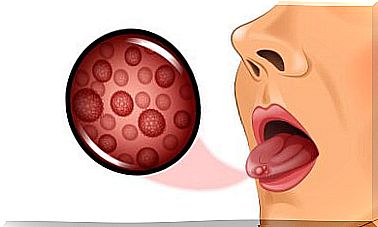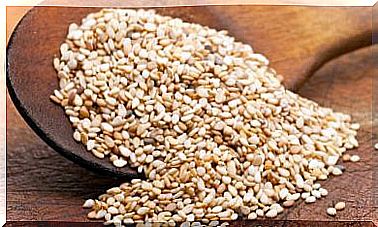High Transaminases: What They Indicate, Causes And Treatment
High transaminases generally do not cause any symptoms. Usually this is discovered only after a routine examination.

Transaminases are enzymes that are produced in different parts of the body, especially in the liver. When there are high transaminases, it means that an inflammatory process is underway in the liver.
Inflammation in the liver implies that there is destruction of the liver cells responsible for releasing these enzymes into the blood. Typically, high transaminases are detected through a routine biochemical examination.
The inflammatory process in the liver originates from various causes : viruses, infectious, autoimmune or ischemic diseases, side effects of certain medications or excess fat in the liver.
Transamins and health
The main function of transaminases is to assist in the production of various amino acids. From a medical point of view, it is considered relevant that a laboratory test shows that the transaminases are high.
As said before, the usual thing is that there is an inflammation in the liver. However, as some studies show, high transaminases are sometimes also due to heart failure or rheumatic diseases. Be that as it may, this is a fact to pay attention to.
Transaminases are known by the acronyms AST (GOT or TGO) and ALT (GPT or TGP). In most cases, the patient does not have any symptoms.
The problem is not detected until a laboratory test reveals that there are high transaminases. In the same way, there are liver diseases that occur without elevated transaminases.
Significance of high transaminases

Although they are not the only ones, we speak of high transaminases when the ALT (Alanine Transaminase) and AST (Aspartate Transaminase) values are high. These two enzymes are the main indicator of liver damage.
As we know, the liver is the body’s laboratory. There, amino acids are synthesized and broken down. This allows energy to be stored. If there is damage to the liver, the membrane of its cells (the hepatocytes) becomes more permeable.
Under these conditions, hepatocytes allow transaminases to leak into the serum, which is the non-cellular part of the blood. Therefore, a high value of these liver enzymes is a direct sign that there is a problem in the liver.
Causes of elevated transaminases
There are many factors that can lead to elevated transaminases. Even, sometimes, a simple flu process causes the values of these enzymes to increase, albeit temporarily.
All this must be evaluated in detail by the doctor. The main causes for which the value of transaminases rises are the following:
- Hepatitis B or C: Caused by a virus, these forms of hepatitis often become chronic.
- Hepatic steatosis: this is what is commonly known as ‘fatty liver’. It means that there is a large accumulation of triglycerides in the liver.
- Infectious mononucleosis: it is a disease caused by the Epstein-Barr virus (EBV), of the herpes-viridae family .
- Hemochromatosis: it is the excessive accumulation of iron in the body.
- Chronic medicated hepatitis (due to certain drugs).
- Alcoholism.
- Other factors: mainly, cytomegalovirus, Wilson’s disease, gallstones, myocardial infarction, hemolytic anemia, diseases of the pancreas and systemic diseases.

Treatment of high transaminases
High transaminases are due to a triggering disease or an external factor associated with lifestyle. In the first case, the appropriate treatment of the disease must progressively lower the level of transaminases.
On the other hand, in case the elevation in transaminase levels is due to lifestyle, measures should be taken in this regard. Your doctor will likely recommend that you follow these guidelines:
- Balanced diet : mainly, processed or fatty foods should be avoided. Obesity must be avoided at all costs.
- Avoid excess sugar and salt in food.
- Staying well hydrated to help the liver eliminate fat. Drink water regularly.
- Avoid the consumption of alcoholic drinks.
- Increase the consumption of vegetables and fruits.
- Cook food steamed, grilled, boiled or baked.
- Perform moderate exercise on a regular basis.
If the inflammation of the liver is caused by some medicine, we have to consult the doctor to see if it is possible to replace it with another that does not generate this side effect. In any case, we must always follow the doctor’s recommendations.









